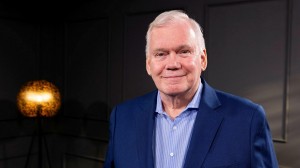 Hannes H. Gissurarson, Professor Emeritus of Politics at the University of Iceland, was the guest of journalist Hermann Nokkvi Gunnarsson in Dagmal, the television part of Morgunbladid, on 22 August 2025. He criticised the non-action of the University of Iceland about an incident on 6 August when a research institute at the University had planned a lecture by Israeli Professor Gil Epstein on Artificial Intelligence and future pension arrangements. About fifteen Hamas supporters turned up, some of them employees of the University, and did not allow the chair, Professor Gylfi Zoega, or the lecturer to talk, shouting them down for twenty minutes, until the meeting was cancelled. Gissurarson pointed out that the uninvited guests were not protesting, as they had the full right to do: they were hindering a scholar in using his freedom of speech and also hindering the people attending the lecture with the aim of discussing the issue with him afterwards from exercising their academic freedom of freely discussing issues. Academic freedom was not only freedom from the undue interference of authorities but also freedom from thugs, as in this example, and from special interests. Gissurarson expressed the view that the so-called protesters were not really concerned about humanitarian issues. There was a much worse humanitarian crisis in Sudan where eleven million people were refugees inside the country, while four million had fled from it, and where the rebel force in the ongoing civil war was trying to commit a genocide on the Alasites in a western corner of the country. Instead, the hooligans at the University were motivated by hatred of Western values—such as equal freedom of all, the free market system, appointments on merit and not membership of any groups, and science as the free competition of ideas—and Israel was simply the only Western country in the Middle East.
Hannes H. Gissurarson, Professor Emeritus of Politics at the University of Iceland, was the guest of journalist Hermann Nokkvi Gunnarsson in Dagmal, the television part of Morgunbladid, on 22 August 2025. He criticised the non-action of the University of Iceland about an incident on 6 August when a research institute at the University had planned a lecture by Israeli Professor Gil Epstein on Artificial Intelligence and future pension arrangements. About fifteen Hamas supporters turned up, some of them employees of the University, and did not allow the chair, Professor Gylfi Zoega, or the lecturer to talk, shouting them down for twenty minutes, until the meeting was cancelled. Gissurarson pointed out that the uninvited guests were not protesting, as they had the full right to do: they were hindering a scholar in using his freedom of speech and also hindering the people attending the lecture with the aim of discussing the issue with him afterwards from exercising their academic freedom of freely discussing issues. Academic freedom was not only freedom from the undue interference of authorities but also freedom from thugs, as in this example, and from special interests. Gissurarson expressed the view that the so-called protesters were not really concerned about humanitarian issues. There was a much worse humanitarian crisis in Sudan where eleven million people were refugees inside the country, while four million had fled from it, and where the rebel force in the ongoing civil war was trying to commit a genocide on the Alasites in a western corner of the country. Instead, the hooligans at the University were motivated by hatred of Western values—such as equal freedom of all, the free market system, appointments on merit and not membership of any groups, and science as the free competition of ideas—and Israel was simply the only Western country in the Middle East.
In this wide-ranging interview Gissurarson emphasised that of course he supported the free immigration of individuals who wanted to contribute and were willing to follow the law of the land. But Europe had recently experienced the mass immigration of people who did not share Western values: they did not accept equal rights for women and sexual minorities, they considered work-shirking entirely appropriate, and they had grown up in a culture of violence. The European voters did not want such immigrants to take over their countries or parts of them, and if the political parties did not listen to the people about this, they would simply be voted out of office. Gissurarson pointed out that the last general elections in Iceland were seminal in that the radical left which had been represented in Parliament since 1937, and often enjoyed the support of 10–20 per cent of the votes, had not got even one member elected. He also pointed out that in the past the Independence Party had largely unified the right in Iceland, but that now there were four parties more or less playing the same role, the much-reduced old party itself, the Centre Party, the Reform Party, and the People’s Party.
Gissurarson said that he was at present completing an assignment for the Brussels think tank New Direction: an anthology of conservative-liberal political thought in the Nordic countries from 946 to 1945, selected, edited and introduced by him. It had been two years in the workings.


